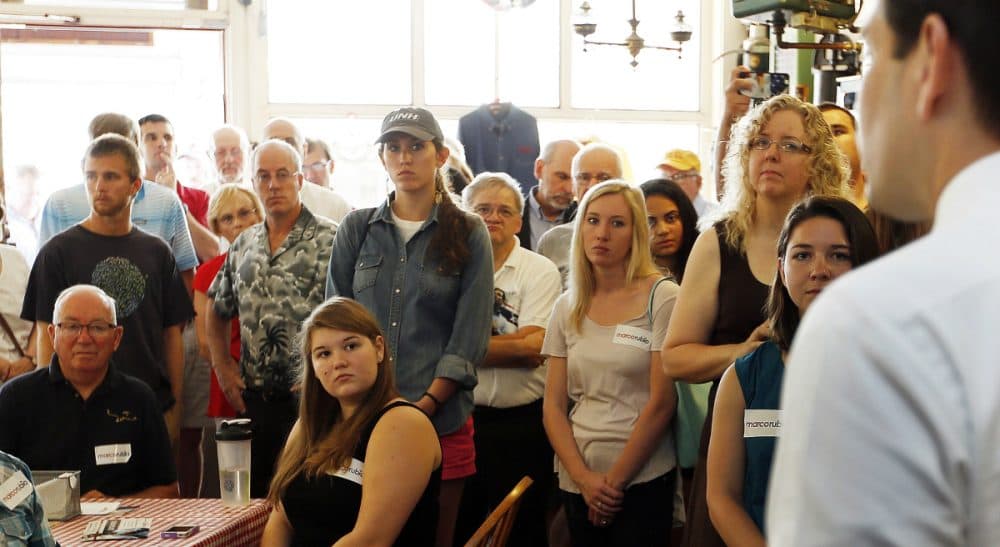Advertisement
Primary Colors: Why Do Two Of America's Whitest States Hold So Much Electoral Sway?

As a high school student in New Hampshire in 1992, I was exposed to every political candidate in what was a wide-open election. In fact, I nearly ran over Jerry Brown, the then-former, now-current governor of California, when he and his entourage tried to dart across Manchester’s busiest street as I was driving down it.
In 2004, I helped a certain senator from Minnesota remove Lyndon LaRouche disruptors from a Howard Dean event on the same day John Edwards had personally promised me that the health care system would take care of my disabled daughter. (Not the only thing he wasn't telling the truth about, it turns out.)
Every four years, the tiny state is teeming with those who aspire to the highest office in the land, offering exposure and insight into the political process to those who happen to live there.
And it has to stop.
If you believe in the Black Lives Matter movement, then it is unconscionable that we give such huge electoral power to two of the whitest states in America: Iowa and New Hampshire. According to the 2010 census, Iowa’s population is approximately 91 percent white, while New Hampshire’s is 96 percent white, just behind neighbors Vermont and Maine. New Hampshire is also one of the wealthiest states, with the sixth-highest median household income in the nation, $62,647.
Neither Iowa nor New Hampshire is close to representative of the population at large, which is only 62.1 percent non-Hispanic white. Yet, in 2004, Iowa and New Hampshire, with populations that comprise less than 2 percent of the nation’s, effectively gave us that year’s Democrat and Republican nominees: John Kerry and George W. Bush.
The 2008 election season, for its part, was a political bloodbath. Losses or poorer-than-expected showings in Iowa and New Hampshire ended the campaigns of Mitt Romney, Fred Thompson, Rudy Giuliani, Bill Richardson, Chris Dodd and Joe Biden.
If you believe in the Black Lives Matter movement, then it is unconscionable that we give such huge electoral power to two of the whitest states in America.
While the campaigns may have limped on for another state or two, the races had left them too far behind to recover. If President Obama had not nailed Iowa, his loss in New Hampshire would likely have ended his bid.
All this after less than 2 percent of the nation was able to vote, and after close to none of the nation’s people of color had a say.
For the vast majority, whose states vote later in the process, our primary votes simply do not matter. The decisions have been made long before the polls open in Massachusetts, say. We almost certainly will know who the nominees will be by the time the commonwealth votes on March 1. By then, only four states will have voted. Of these four states, only Nevada has a higher percentage (48.5 percent) of people of color than the nation as a whole.
Without a national primary, we deprive the vast majority of Americans — especially non-white Americans — of the opportunity to shape the future of the nation. We disenfranchise entire classes of people who are already lacking the political and social privilege whites enjoy. As white people, we enjoy higher rates and levels of employment, higher average incomes and levels of security, greater safety, longer lifespans, better educational outcomes, lower rates of arrest and incarceration, lower rates of and shorter sentences when we are convicted. As a race, we hold on tight to those advantages, refusing to share the power they confer with those who are not so lucky.
The only solution is to enact laws mandating that primary elections be held simultaneously across the nation. Hold voting open for a 24-hour period from Puerto Rico to Hawaii, and allow everyone’s votes to matter.
Black Lives Matter. And Black Votes should Matter, too.
